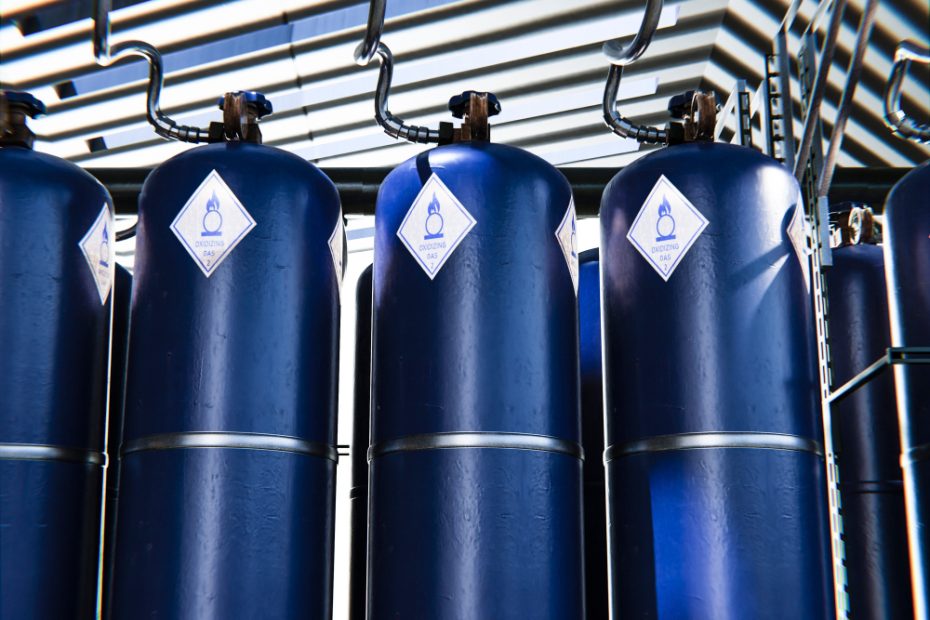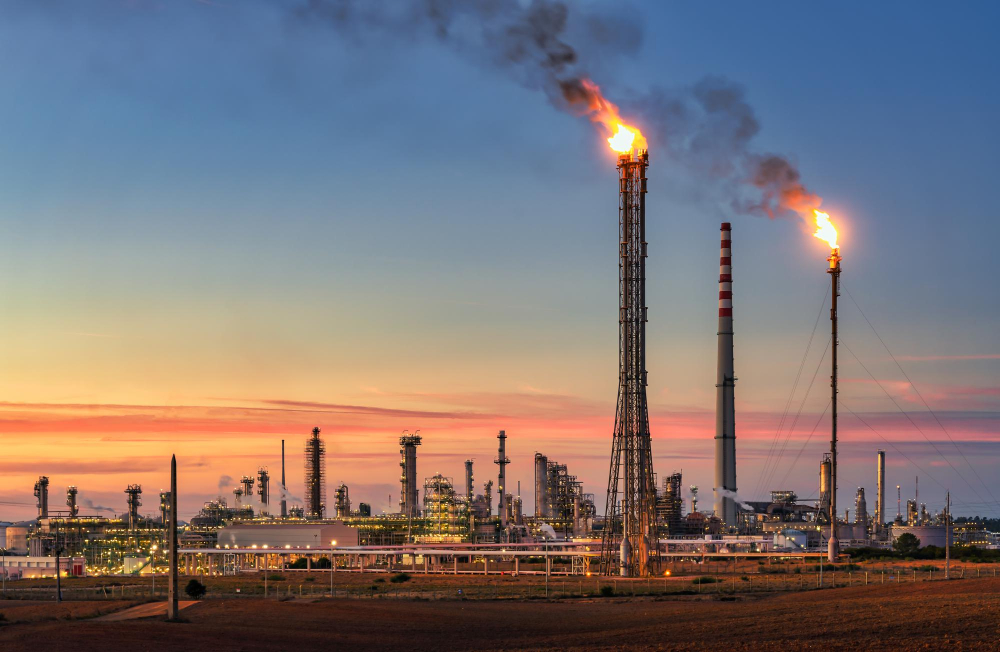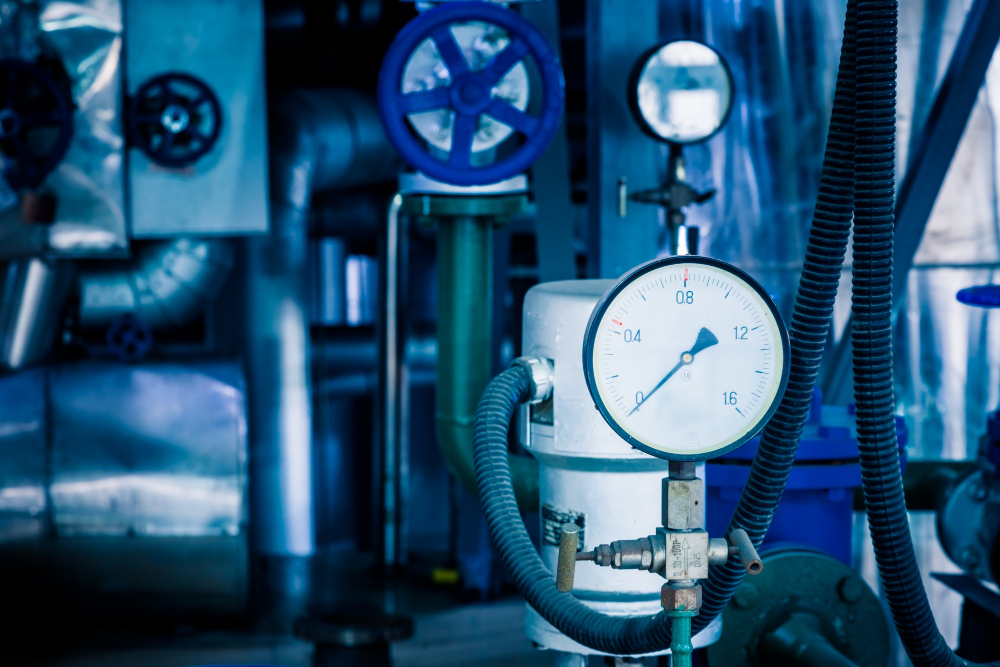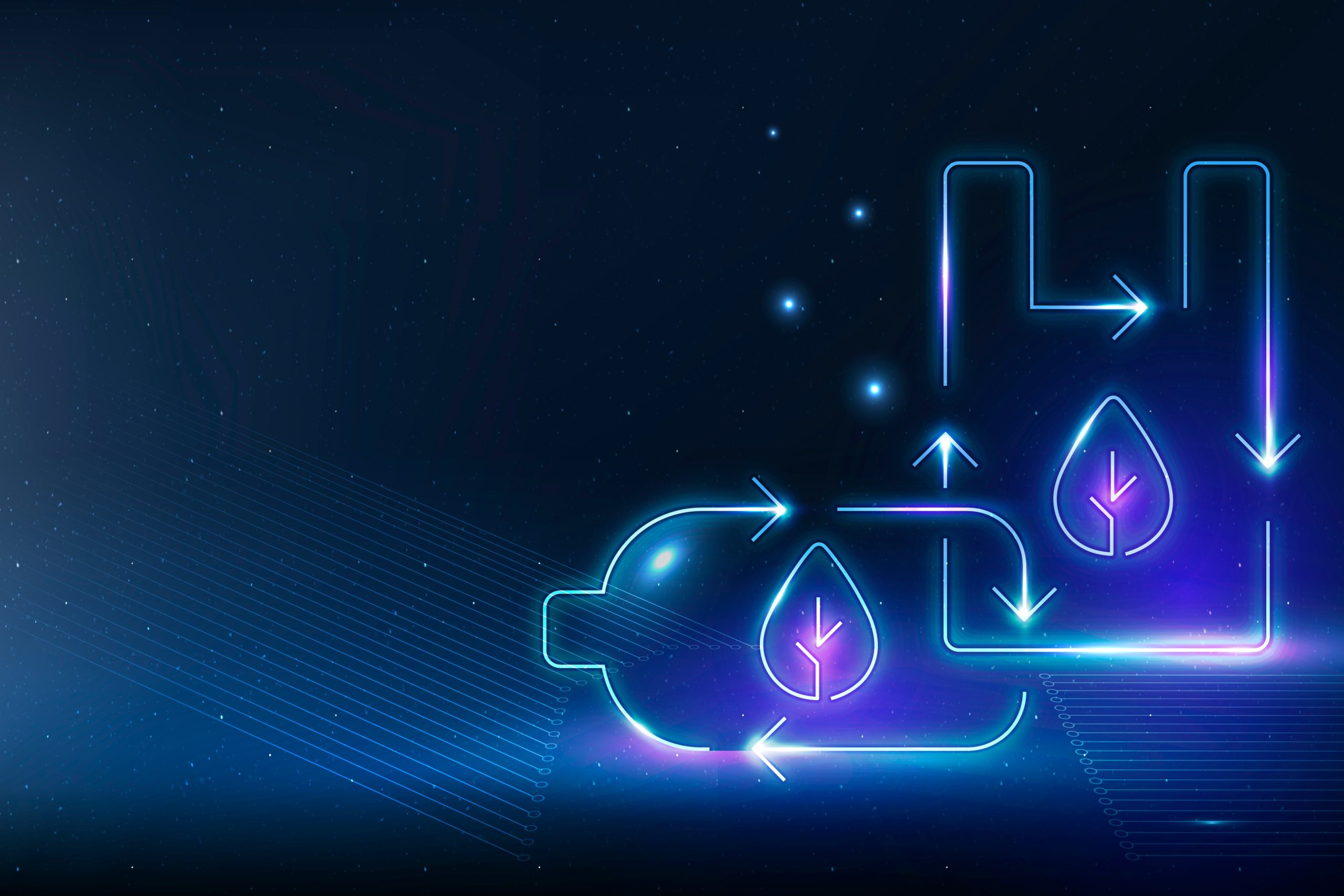How Safe is Natural Gas for BBQ?
Natural gas is a popular fuel choice for barbecuing in the UK due to its convenience and efficiency. Many people prefer natural gas over other types of fuels such as charcoal or propane because it is clean-burning and produces less smoke and odor. However, the safety of using natural gas for BBQ must be a top priority to ensure a pleasant and hazard-free grilling experience.
The Safety Benefits of Natural Gas
One of the key safety benefits of using natural gas for BBQ is its controlled combustion process. Unlike charcoal or propane, natural gas burns more evenly and does not produce harmful emissions or excessive smoke. This not only makes it safer for the environment but also reduces the risk of flare-ups and accidents during grilling.
Moreover, natural gas is delivered to your home through a dedicated pipeline system, which eliminates the need for storing and handling potentially hazardous fuel containers. With natural gas, there are no risks of running out of fuel in the middle of a cookout or the need to transport heavy propane tanks to refill them.
Safe Handling and Installation
To ensure the safe use of natural gas for BBQ, it is important to follow proper handling and installation procedures. If you are setting up a new natural gas grill, it is recommended to hire a licensed professional to install the necessary gas lines and connections. This ensures that the installation is done correctly and reduces the risk of leaks or malfunctions.
Regular maintenance and inspections are crucial for the safe operation of natural gas grills. Check for any signs of wear or damage on the gas lines, valves, and burners. Make sure all connections are tight and secure. Additionally, always refer to the manufacturer’s instructions and guidelines for safe usage and maintenance of your specific grill model.
Gas Leak Prevention and Detection
While natural gas is generally safe, it is important to be aware of the potential for gas leaks. Natural gas is odorless, but an odorant called mercaptan is added to give it a distinct smell, similar to rotten eggs. This odor serves as a warning sign for gas leaks.
If you suspect a gas leak while using your natural gas grill, take immediate action. Turn off the gas supply at the source, extinguish any open flames, and safely move away from the area. Contact your gas supplier or emergency services to report the leak. Avoid using any electrical devices, switches, or open flames until the leak is resolved.
Tip: It is advisable to keep a gas detector or alarm near your grill and in your home to quickly detect any gas leaks and ensure your safety.
Safety Tips for Grilling with Natural Gas
Here are some additional safety tips to keep in mind when grilling with natural gas:
- Always grill in a well-ventilated area, preferably outdoors, to prevent the buildup of carbon monoxide and other gases.
- Keep flammable materials, such as paper towels or gasoline, away from the grill.
- Never leave the grill unattended while it is in use.
- Ensure the grill is stable and placed on a level surface to prevent tipping.
- Regularly clean and remove grease buildup from the grill to reduce the risk of flare-ups.
By following these safety guidelines and properly maintaining your natural gas grill, you can enjoy a safe and enjoyable BBQ experience with family and friends.
Can you smell natural gas from the BBQ?
Barbecue season is here, and many people are firing up their grills to enjoy a delicious outdoor meal. But have you ever wondered if it’s possible to smell natural gas from your BBQ?
The short answer is yes, you can smell natural gas from your BBQ. Natural gas is odorless, but an odorant called mercaptan is added to it to give it a distinct smell, similar to rotten eggs. This is done for safety reasons, as it allows people to easily detect a gas leak.
How does the smell reach your BBQ?
When natural gas is used in a BBQ, it is connected to the grill through a gas line or a propane tank. If there is a leak in the gas line or the connections are not tight enough, the odorized gas can escape and be detected.
What should you do if you smell natural gas from your BBQ?
If you detect the smell of natural gas coming from your BBQ, it’s important to take immediate action to ensure your safety. Here are some steps you can follow:
- Turn off the gas supply immediately.
- Extinguish any open flames or sparks.
- Move away from the area and avoid breathing in the gas.
- Call the National Gas Emergency Service on 0800 111 999 to report the leak.
- Do not attempt to fix the problem yourself.
Remember, safety should always be your top priority when dealing with gas leaks.
“If you detect the smell of natural gas, it’s crucial to take immediate action to ensure your safety and the safety of others around you.”
In conclusion, while natural gas used in BBQs is odorless, an odorant is added to it to give it a distinct smell for safety purposes. If you ever smell natural gas from your BBQ, follow the necessary steps to ensure your safety and contact the appropriate authorities.
Is Natural Gas BBQ Safer Than Charcoal?
When it comes to outdoor cooking, many people in the UK are torn between using a natural gas BBQ or a charcoal BBQ. While both options have their own merits, safety is a top concern for most individuals. In this article, we will explore the safety aspects of using a natural gas BBQ compared to a charcoal BBQ.
The Safety of Natural Gas BBQ
Using a natural gas BBQ can offer several safety advantages over a charcoal BBQ. One of the key benefits is the absence of open flames during ignition and cooking. Natural gas grills usually have an electronic ignition system, eliminating the need for lighter fluid or matches. This reduces the risk of accidental fires caused by sparks or flammable materials.
Additionally, natural gas BBQs provide better temperature control due to the availability of adjustable burners. This allows users to regulate the heat more precisely, reducing the chance of food getting burnt or undercooked. Moreover, natural gas BBQs often have built-in safety features such as flame tamers and automatic shut-off valves that help prevent accidents.
The Risks of Charcoal BBQ
Charcoal BBQs, on the other hand, come with their own set of risks. The primary concern is handling and storing charcoal, which can be messy and potentially hazardous. Charcoal briquettes can release carbon monoxide (CO) when ignited, leading to health hazards if used in enclosed spaces with inadequate ventilation.
Furthermore, charcoal grilling involves the use of lighter fluid for ignition, which can be volatile if not handled correctly. It increases the risk of flare-ups and accidental fires. Inexperienced users may also struggle to control the temperature effectively, resulting in unevenly cooked food and potential foodborne illnesses.
Are there dangers with natural gas BBQ?
Natural gas BBQs have become increasingly popular among UK homeowners due to their convenience and cost-effectiveness. However, it’s important to be aware of the potential dangers associated with these appliances to ensure safe usage.
The risk of gas leaks
One of the primary concerns with natural gas BBQs is the risk of gas leaks. While natural gas is generally safe when used correctly, a leak can lead to a hazardous situation. It’s crucial to regularly inspect the gas hoses and connections for any signs of wear or damage. Additionally, ensure proper installation by a licensed professional to minimize the risk of leaks.
Carbon monoxide poisoning
Safety precautions should also be taken to prevent carbon monoxide poisoning, which can occur when natural gas is not burned completely. Always make sure the BBQ is properly ventilated and avoid using it indoors or in enclosed spaces. Carbon monoxide detectors can provide an additional layer of safety and should be installed in areas near the BBQ.
Fire hazards
Like any cooking appliance, natural gas BBQs pose a potential fire hazard if not used with caution. Ensure the BBQ is placed on a stable surface away from flammable materials such as curtains or bushes. Keep a fire extinguisher nearby and never leave the BBQ unattended while in use.
Safe practices for using a natural gas BBQ
- Regularly inspect and maintain the gas hoses and connections
- Ensure proper ventilation while operating the BBQ
- Install carbon monoxide detectors near the BBQ area
- Keep the BBQ at a safe distance from flammable materials
- Have a fire extinguisher readily available
- Never leave the BBQ unattended while in use
It’s essential to prioritize safety when using natural gas BBQs. By following the recommended precautions and regularly maintaining the appliance, you can enjoy your outdoor cooking experience without unnecessary risks.
How to Detect a Natural Gas Leak in Your BBQ?
Natural gas is commonly used for barbecues due to its efficiency and convenience. However, it is essential to prioritize safety and be able to detect any potential gas leaks. Here are some important steps to follow:
1. Smell for the Sulfur-like Odor:
Natural gas is odorless, but an odorant called mercaptan is added to give it a distinctive sulfur-like smell. If you suspect a leak, use your sense of smell to detect any unusual odors near your barbecue.
2. Listen for Hissing or Whistling Sounds:
A hissing or whistling sound near the gas connections could indicate a gas leak. Pay close attention while your barbecue is operating and listen for any unusual noises.
3. Perform a Bubble Test:
Mix equal parts of water and liquid dish soap in a spray bottle. Turn on the gas supply but do not ignite the barbecue. Spray the soapy solution onto the gas connections, hoses, and valves. If you see bubbles forming, it indicates a leak.
4. Utilize a Gas Leak Detector:
A gas leak detector is a handy tool that can quickly detect gas leaks. Follow the manufacturer’s instructions to use the detector properly. This device typically sounds an alarm or flashes lights when it senses natural gas in the air.
5. Regularly Inspect Gas Connections:
Periodically check the condition of your gas connections, hoses, valves, and regulators. Look for signs of wear, cracking, or corrosion. Replace any damaged components immediately to prevent potential leaks.
Remember, if you suspect a gas leak or are unsure about detecting it, it is crucial to call a professional gas technician for assistance. Gas leaks can be hazardous and should not be taken lightly.
“Safety should always be the top priority when it comes to using natural gas for barbecues.”
Can you die from natural gas fumes?
Natural gas is a commonly used energy source in households throughout the UK. While it provides convenience and efficiency, it is important to understand the potential dangers associated with natural gas fumes. Inhaling these fumes can have serious health consequences, and in extreme cases, it can lead to death.
Health risks of natural gas fumes
Exposure to natural gas fumes can cause both short-term and long-term health problems. In the short term, inhaling these fumes can lead to symptoms such as dizziness, nausea, headaches, and difficulty breathing. Prolonged exposure or higher concentrations of gas can result in unconsciousness or even death.
Gases such as carbon monoxide (CO) and methane are the primary culprits in natural gas-related deaths and illnesses. Carbon monoxide is especially dangerous as it is odorless and colorless, making it difficult to detect without proper equipment.
Detecting natural gas leaks
It is crucial to be aware of the signs of a natural gas leak and take appropriate action if you suspect one. These signs may include the smell of rotten eggs, hissing sounds near gas appliances, dead plants or vegetation around gas pipelines, or a sudden increase in your gas bills.
If you suspect a natural gas leak, follow these steps:
- Evacuate the premises immediately, ensuring everyone’s safety.
- Avoid using any electrical devices or open flames that could ignite the gas.
- Contact the National Gas Emergency Service on 0800 111 999 to report the leak.
Preventing natural gas-related incidents
To minimize the risk of natural gas-related incidents, it is important to take preventative measures:
- Regularly maintain and inspect gas appliances, including boilers, heaters, and cookers.
- Ensure proper ventilation in areas where gas-powered appliances are used.
- Install carbon monoxide detectors in your home to detect any potential leaks.
- Don’t attempt to fix gas leaks yourself; always seek professional help.
“Natural gas is a valuable energy source, but safety should always be a top priority. By being aware of the risks, detecting gas leaks promptly, and taking preventative measures, you can ensure the well-being of your household.”
| Signs of a Natural Gas Leak | Steps to Take |
|---|---|
| Smell of rotten eggs | Evacuate the premises immediately |
| Hissing sounds near gas appliances | Avoid using electrical devices or open flames |
| Dead plants or vegetation around gas pipelines | Contact National Gas Emergency Service |
| Sudden increase in gas bills |
Conclusion
In terms of safety, a natural gas BBQ is generally considered safer than a charcoal BBQ due to the absence of open flames during ignition and cooking, better temperature control, and built-in safety features.
However, it is important to remember that safety precautions should be taken regardless of the type of BBQ used. Always read the manufacturer’s instructions, follow proper handling procedures, and ensure proper ventilation when using a BBQ, whether it is powered by natural gas or charcoal.
Ultimately, the choice between a natural gas BBQ and a charcoal BBQ comes down to personal preference and convenience. Natural gas BBQs may offer more safety benefits, but some people prefer the traditional smoky flavor and authenticity of charcoal grilling. Whichever option you choose, prioritize safety while enjoying your outdoor cooking experience.



